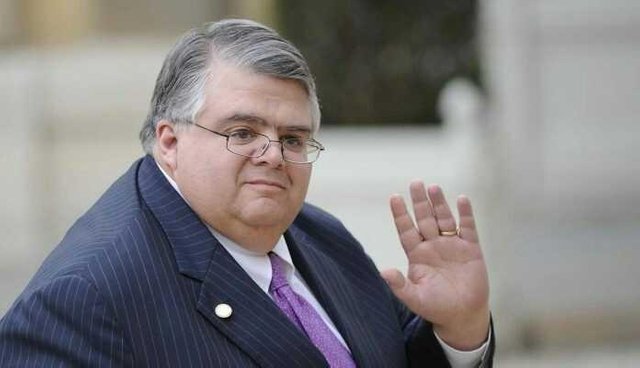WORLD CENTRAL BANKER TO CENTAL BANKS : BITCOIN IS BUBBLE, PONZI AND DIZASTER.
General Manager of the Bank for International Settlements (BIS), Agustín Carstens, gave a talk at Goethe University in its House of Finance, Tuesday, 6 February in Frankfurt. Titled Money in the Digital Age: What Role for Central Banks?, the talk saw Mr. Carstens acknowledge “We have seen a bit of a shift, to issues at the very heart of central banking. This shift is driven by developments at the cutting edge of technology. While it has been bubbling under the surface for years, the meteoric rise of bitcoin and other cryptocurrencies has led us to revisit some fundamental questions that touch on the origin and raison d’être for central banks.”
World’s Central Banker: Bitcoin Challenges Heart of Central Banking
As the central banker to the globe’s central banks, the BIS special drawing rights balance nears a quarter trillion in reserves. The body is made up of 60 member states, heavily weighted toward Europe with over half its membership. The Depression-era organization in its current incarnation is a collaborative body issuing stress tests, acting as a prime counterparty, and a trustee to the world’s central banks.Mr. Carsten’s appearance is part of a lecture series sponsored by Sustainable Architecture for Finance in Europe, the Center for Financial Studies, and the Deutsche Bundesbank. At issue to the GM were three principal questions: “What is money? What constitutes good money, and where do cryptocurrencies fit in? And, finally, what role should central banks play?,” he asked.
Money, he asserts, is flatly connected to government, “an indispensable social convention backed by an accountable institution within the State that enjoys public trust.” Setting the tone, he immediate claims, “Private digital tokens posing as currencies, such as bitcoin and other crypto-assets that have mushroomed of late, must not endanger this trust in the fundamental value and nature of money.”After a brief discussion of money’s history, he stumbles upon what amounts to patting himself on the back, insisting “laissez-faire is not a good approach in banking or in the issuance of money. Indeed, the paradigm of strict bank regulation and supervision and central banks overseeing the financial and monetary system that has emerged over the last century or so has proven to be the most effective way to avoid the instability and high economic costs associated with the proliferation of private and public monies,” which sets up a dramatic conflict with cryptocurrency such as bitcoin.
Basically Just Mega-Sudokus
Dismissing almost out of hand the distributed ledger technology undergirding bitcoin, he waxes, “Who would have thought that having people guessing solutions to what was described to me by a techie as the mathematical equivalent of mega-sudokus would be a way to generate consensus among strangers around the world through a proof of work? Does it thus provide a novel solution to the problem of how to generate trust among people who do not know each other?,” he asked rhetorically.He then characterizes bitcoin as having three “obvious flaws.” Debasement, trust, and inefficiency are hallmarks of what Mr. Carstens views as “novel technology.” Debasement, he contends, happens through forks, creating seemingly endless versions of bitcoin which he believes are essentially inflationary, contrary to its claim of being scarce. “After all, it just takes a bunch of smart programmers and a catchy name. As in the past, these modern-day clippings dilute the value of existing ones, to the extent such cryptocurrencies have any economic value at all,” he warns.
